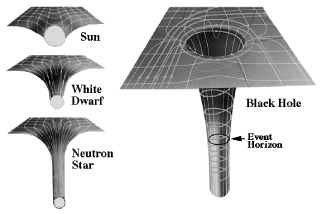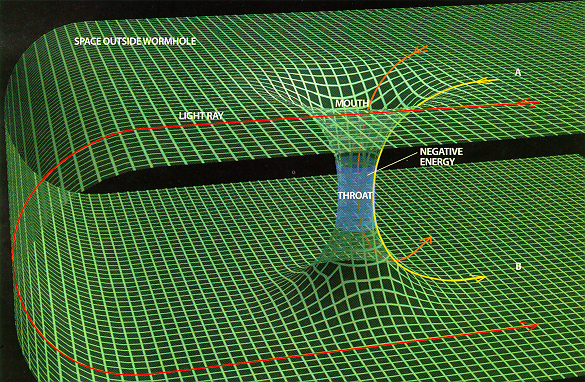Space and Time
Let us set the stage for a moment. How do we describe the location of
events which occur in
the Universe? Is it sufficient to give simply the where of the event? No,
in order to define uniquely the event, we must also say when the event takes
place. That is, if we want to define events in our Universe we must give the
location and time of the event. In this sense, time acts as just another
coordinate in the Universe much as we define the x,y,z
positions for objects in space. This, however, immediately points out that
time, although apparently just another coordinate for Universal
events, seems to have special properties--we return to
the specialness of time later. Space and time form a structure,
spacetime, on which (in which) events in the Universe take place.
But his also begs the question of whether space and time are things or
mathematical constructs. |

|






